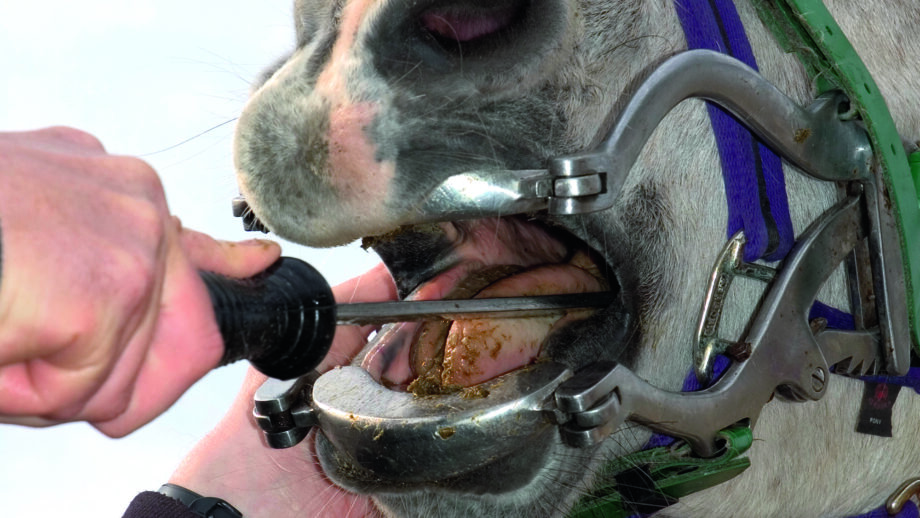The Royal College of Veterinary Surgeons is asking for feedback on veterinary paraprofessionals. H&H finds out what this could mean for equine practitioners and owners
PARAPROFESSIONALS could become regulated under the Royal College of Veterinary Surgeons’ (RCVS) umbrella in the hopes of tightening industry standards.
The RCVS legislation reform consultation is asking for feedback from the public and professionals on recommendations for changes in which professions are governed.
The consultation, which closes on 23 April, follows findings by the RCVS legislation working party (LWP), established in 2017, which aimed to propose changes to the Veterinary Surgeons Act (VSA) to ensure the RCVS can be a “modern and efficient” regulator.
A spokesman for the RCVS told H&H one key principle of the LWP’s work was that the vet-led team, including vet nurses, should fall under a single regulatory umbrella. The LWP defined the vet-led team as “appropriately regulated professionals working under the direction of a veterinary surgeon, to protect animal health and welfare”.
“The LWP proposed a model of paraprofessional regulation, allowing the RCVS to regulate all members of the vet-led team,” he said.
“This could include equine dental technicians [EDTs] and musculoskeletal therapists, whose work has been identified as requiring stronger legislative underpinning that would need to be linked with RCVS Associate status.”
The spokesman added the RCVS has a long-standing recommendation that the title “‘veterinary nurse” should be legally protected to prevent its use by unqualified, unregulated individuals, and continues to seek this change in the law.
“The protection of professional titles gives clarity and assurance to the public and prevents untrained individuals from claiming expertise they do not have,” said the spokesman. “The LWP report reaffirmed this recommendation, and further recommended that protection of title be extended to any new paraprofessions that fall under the RCVS’s regulatory umbrella.”
British Association of Equine Dental Technicians (BAEDT) chairman James Arkley told H&H the association has been liaising “very closely” with the RCVS and Defra on the consultation and supports a “much-needed” review of the VSA making it fit for purpose for modern veterinary services.
“BAEDT feels paraprofessionals, specifically EDTs, being regulated as vets and vet nurses are, will only improve horse welfare and provide much-needed clarity to the horse-owning public and businesses on who is qualified to perform equine dentistry in the UK,” he said.
“In initial feedback, BAEDT has identified issues and benefits that would impact our members following the working party recommendation report. The RCVS has committed BAEDT will be involved in all future paraprofessional discussions and sees BAEDT and its qualified membership as an integral part of the vet-led team proposals.
“We hope and trust the RCVS will continue to recognise the extensive experience and continued professional development training our membership must undertake, the British Equine Veterinary Association equine dentistry qualification, and how this gives the public confidence they are using individuals who have met a high standard of workmanship and are working with the horse’s best interests at the fore.”
Eleanor Andrews, president of the Register of Animal Musculoskeletal Practitioners (RAMP) said the organisation “welcomes” the consultation.
She told H&H: “We hope it will provide clarity and direction at the end of years of regulatory uncertainty, continuing the positive outcome from the recent statement of clarification.
“We hope it will enable continued positive development in supporting animal welfare and improving treatment standards among the musculoskeletal professions, aiding ease of access to highly skilled practitioners and improving the confidence of vets and the general public in their animal’s health care. All of which support RAMP’s fundamental principles,” she said.
You might also be interested in…

Win for horses in new vet guidance on practitioners *H&H Plus*

Routine vet work may take place during lockdown under new guidance
The Royal College of Veterinary Surgeons has provided new guidance to allow vets to determine which services they can carry

An essential guide to equine dental care

Equine physios go back to NHS roots during Covid pandemic
“We’re all healthcare workers anyway so everyone was willing”

Nina Wareham’s physiotherapy blog: Equine back pain — recognising the signs
Our chartered physiotherapist investigates back pain in horses and how to recognise if your horse is suffering from it
